Damaging stories from inside hunting, shooting, and the badger cull have been circulating for years. Everything from breaking the law to assaults or harassment of monitors and the public and a police force seemingly happy to 'look the other way'.
But there is always someone watching, always someone listening. The Secret Monitor.
In their latest post, the Secret Monitor is in the west of England.
In my last post ‘Partners in crime. Who's enabling the cruelty of stag hunting?’ I touched on the businesses that support and enable hunting. There is of course another group that most activists are convinced is helping hunting to survive…
This post is mostly about my and other activists' experience of the police.
Every word is true but just know that like every other tax-paying citizen I want to believe in 'policing without fear or favour'. Historically, though, the policing of hunts has been a very different story. Before the ban hunt saboteurs were, with good reason, as wary of the police as they were of the hunts and their thugs. The arrival of the Hunting Act in 2004 which banned hunting should have changed that. It didn’t.
There is a very clear two-tier policing approach to the ‘hunting issue’.
Tier one for the privileged hunt community, and tier two for everyone else.
The reason hundreds of people like me willingly give their free time to protect wildlife from the cruelties of bloodsports is because they have compassion and a strong sense of justice. A chasm exists between what the police are prepared to do and what must be done, and monitors and saboteurs are the people who aren’t prepared to accept that. We exist because bloodsport cruelty exists, and we are on the ground because no one else is doing anything about it.
That should be easy enough to understand, but over the decades police have adopted the attitude that those of us who commit to carrying out our civic duty - preventing the law from being broken or protecting animals from cruelty by hunts - are somehow to blame for the war raging in the countryside.
Whose attitude? If I had a penny...
A North Devon CID officer, Mick Dean, once admitted that even when activists are victims of crime, even violent crime, any interactions the police have with them can be used as an intelligence-gathering exercise. Police routinely still arrive at an incident and want everyone’s details, delaying and obstructing us whilst the hunts carry on around us, business as usual. Anyone who has monitored or sabbed will tell you the same. Officers on the ground if not pro-hunt are certainly anti ‘ANTI’. Dislike us or not, though, they certainly seem very keen to get to know us judging by the number of times we’ve had to give the same details to them over and over again...
Police officers who encounter anti-hunt campaigners have commented on the seemingly ‘challenging’ conduct of these groups or individuals. They don’t realise that although they may arrive at an incident as an open book, the uniform they wear represents every police officer who went before them. When you have witnessed years and years of police failures, either through incompetence or prejudice, it is very difficult to put faith in an officer who arrives at a scene.
If I had a penny for every time I have heard police officers complain about campaigners calling the police in the first instance but then failing to engage at the later stages I’d be a very wealthy person. What I find baffling is the fact that these officers never try to understand why that is. Why would someone call the police then not want to engage?
In fact, why call the police at all?
The question is lazy at best and the answer is simply heartbreaking: because we have no other choice. When your colleague has been battered beyond recognition, when an animal has been torn to pieces in front of you, when yet another vehicle has been vandalised, when riders have trampled over your comrade, what else are we supposed to do than call the police? Batman isn't real. There is no one else to call.
But if (IF) the police do attend, it’s often after a long delay, by which time the immediate threat or risk of harm has already occurred or passed. The police arrive to a tense situation, a standoff where adrenaline is coursing and fear provokes a response which is interpreted as anger.
Why do we seem reluctant to engage? Given the long history of letdowns and failings there should be no problems understanding why at all.
Police officers holding up activists at a beagling festival
‘A system failing'
Most of us have tried to turn the situation around at some point.
No one wants this situation to exist, but nothing seems to change.
The Secret Monitor began having meetings with Avon & Somerset Police (A&SP) back in 2016 (they may well have been happening before this with other activists, of course). They are one of the oldest forces of the modern policing system, and the force whose 'patch' covers the area hunted by the Quantock Stag Hounds.
Avon & Somerset police already had quite the reputation by then. In 2015 they raided the home of an anti-hunt activist and made an arrest based on shaky intelligence. After a law firm representing the activist raised concerns around the severity of the response and their highly dubious ‘evidence’, A&SP were eventually forced to backtrack and dropped all charges. The force had to pay considerable financial damages to the activist for their transgressions. Transgressions driven by very obvious prejudices.
One incident detailed in full to the Secret Monitor resulted in an Avon & Somerset officer being placed on a barred list following an inquiry. He had attended the home of a staunch anti-hunt, animal rights campaigner, after a series of 999 calls, but he actively sought to work against the campaigner. The officer advised the individual who had broken into the home and seriously assaulted the activist, and was caught on CCTV admitting he had been ‘trying his best’ for his ‘mate’. The findings of the inquiry were stark: 11 counts of misconduct including gross misconduct. It concluded that amongst other reasons, the officer had treated the campaigner with - again - prejudice.
Prejudice for saving lives. Prejudice for preventing cruelty and harm. Prejudice for being a decent human. Prejudice for pointing out police failures, or perhaps prejudice for having previously taken legal action against the police when they themselves behaved in a way which took them outside of the law.
2018 saw a classic case of victim-blaming that many other activists will be all too familiar with. After stewards from the Quantock Stag Hounds carried out targeted stalking against an anti-hunt campaigner, police officers from Wiliton Station offered the following advice “...you travel great distances to attend these events, if you do not wish to become a repeat victim I suggest you keep yourself safe by staying at home”.
Contrast those words of wisdom with what the College of Policing says about Neighbourhood Watch Schemes (NWS) and crime prevention:
"There is strong evidence to suggest that Neighbourhood Watch Schemes (NWS) reduce crime...The purpose of NWS is to encourage involvement of local citizens in activities that promote safety or assist with crime prevention.”
Quad bike with no rear plate. That’s a crime - If we can see it, why can't the police?
‘Rural extremism' - the rise of veganism...
The idea of an institutional bias may sound farfetched, but it really isn’t. In 2019 a meeting was held at the home of anti-hunt activists engaged in a campaign against stag hunting. The then A&SP Sergeant of rural crime, Andrew Murphy, opened the conversation by describing what a wonderful organisation he considered the Countryside Alliance to be. The room fell silent. The situation didn’t improve as he went on to explain that it was a force priority (amongst other things) to address ‘rural extremism’. The Sergeant was asked to clarify what A&SP considered to be rural extremism. His staggering and uninformed reply was “Well, the rise of veganism, you know, farmers are targeted and harassed, butchers shops vandalised...”.
Sergeant Murphy was later asked to explain his comments. Of course he had no statistics to back up what he had said. None. At all. It was all speculative. Opinion-based bias. For him to have felt so secure to voice those opinions in the home of someone he knew next to nothing about, though, showed a remarkable degree of confidence - not borne out of knowledge or based in fact, but one that must have been so institutionally normal for him that he was confident in making these comments openly in someone’s home.
The same year a case was made against the Quantock Stag Hounds for illegal hunting. A&SP allowed the case to go right to the edge of the time-barred limit and only following serious efforts made by the campaigning group involved was the case taken seriously by the police. The huntsman and whip were ‘invited’ in for interviews - but A&SP arrested the anti-hunt campaigner and raided their home.
In yet another incident involving the QSH, monitors were in a fixed position observing the hunt at the side of the A39, a major road running the length of Somerset which the hunt was blocking.
A stag sent fleeing by the hounds was captured on camera by the monitors. QSH stewards arrived immediately after. They made futile attempts to physically block the camera (which was still running so recorded everything!) and made threats. This (along with numerous traffic offences) was reported to A&SP and their response was that both the monitor and the steward were at fault. The officer wasn’t able to substantiate what offence the monitor had committed, but when A&SP are forced to acknowledge an offence being committed by the hunt they will quickly look to allocate an offence to the ‘other side’ to even things up.
Is this their skewed concept of policing without fear or favour?
The Quantock Stag Hounds block the A39
Note illegible number plate on the ATV which is a traffic offence
Avon & Somerset Police - an additional obstruction to achieving an end to illegal stag hunting.
Make no mistake, the people who have pushed stag hunting into the public domain, and painfully under the nose of A&SP constabulary, are grassroots activists. But police have not stood side by side with campaigners who have sought an end to this cruel - and illegal - practice. In fact, A&SP has made efforts to discourage campaigners from attending QSH meets, put them at risk by not attending when assaults occur, haven't properly investigated incidents, and have refused to take proactive steps to improve public safety around firearms.
For too long Avon & Somerset have been kicking the 'stag hunting can' into the long grass. They have resorted to guilt trips (mentioning the other serious offences they 'should be' investigating) and excusing the hunts by saying ‘they are trail hunting’ (in practical terms officers have NO IDEA what trail hunting is (a lie made up by hunts like the QSH in order to enable them to continue operating) or how it looks and differs from old-fashioned illegal hunting).
Promises have been made and abandoned. A promise made by the Police and Crime Commissioner that officers would be attending each event on the Quantock Hills was soon found to be fruitless. When special officers were deploying on the hills to observe the Quantock Stag Hounds they were challenged by a raging Chris Gibbons screaming at the officers for being out there (the same Chris Gibbons who is now taking a forced 'break from hunting’ after resigning his mastership following the recent violent attack on North Dorset Hunt Sabs). Gibbons was incensed that the officers were attending the meets given “all he does for them”. Monitors believe Gibbons was claiming that he offers his services to dispatch injured deer at the request of the A&SP: but he doesn’t and monitors have the FOI which proves it.
Where do these stag hunters get the confidence to lie so openly in front of police officers? Why are they so sure of themselves? Perhaps the rumours are true and there really is someone at A&SP helping them out from time to time?
Surely not? In 2017 a very specific piece of intelligence was given to A&SP by an anti-hunt campaigner. Three days later the information was repeated back to the very same campaigner by a rider with the QSH. In less than 72 hours the intelligence had ‘somehow’ gone from the A&SP to the QSH.
Incidentally, another force where there is a regular disparity between how anti-hunt activists and bloodsports enthusiasts are treated is Dorset Police.
Mark Doggrell, disgraced former huntsman for the notorious Blackmore and Sparkford Vale (BSV), felt the benefit of this disparity throughout his time with the hunt. At his last meet anti-hunt campaigners complained to a P.C. Hammond about criminal damage to several vehicles. Doggrell had literally kicked off wing mirrors as he rode past. Hammond wasn’t interested in hearing complaints. Instead, he insisted he would deal with Doggrell’s behaviour ‘later’. ‘Later’ meant allowing the BSV to hunt illegally and predictably, they killed a fox.
Shortly after the kill monitors presented on camera the mangled remains of the fox to the officer. They remain certain to this day that the fox lost his life due to a police officer's prejudice against activists and preferential two-tier policing in favour of the hunt.
And officers wonder why we see them as a problem.
Member of the public making their feelings known...
We feel strongly about armed gangs terrorising wildlife? Of course we do.
All the way back in 2014 an A&SP police officer admitted that the reason the badger cull was so heavily policed was owing to the strength of feeling on both sides, and the presence of firearms. Well, newsflash, stag hunting is no different. These packs kill animals without justification, are disorganised and chaotic, carry firearms with no protocols in place to prioritise safety, and there are no checks and balances in place for reporting incidents either internally or to relevant authorities when things go wrong. They are literally a law unto themselves. Armed gangs criss-crossing the countryside to kill deer.
Activists carry the anger and emotional burden of all of this. But we can never abandon hope. The light being shone on the stag hunts at the moment is proving to be very painful for them. It is also dragging A&SP into the firing line. They are now being asked to account for their action or inaction. We are all watching every move they make. The opportunity has arrived for A&SP to prove themselves worthy of a different reputation: a reputation of professional, proactive, and persistent officers of the law.
For anyone who has spent any time on the front line defending wildlife there really is no debate about whether the police are impartial or not. Everyone has at some time experienced being treated improperly because we have chosen to step into the breach where policing is absent.
And what's at the heart of it? As the Dorset wildlife crime officer Phil Sugrue once admitted, these people (the hunt) have ‘deep pockets and influential friends’. And there you have it...
Until next time
The Secret Monitor
(Photos and video stills The Secret Monitor)
We here at Protect the Wild - just like The Secret Monitor and every other tax-paying citizen - want to believe in 'policing without fear or favour'. There is far too much evidence to show that’s not the reality. However, as we state on every page of Protectors of the Wild, we believe that wildlife crimes and incidents must still be reported. Some wildlife crime officers (unfortunately not all) do care about wildlife and do want to help, and reports help reveal patterns that point to certain areas or even individuals.
As we also say, wildlife crimes are not currently ‘notifiable’. Police forces are required by law to inform the Home Office of any notifiable offences, which then uses the reports to compile the crime statistics known as ‘recorded crime’. They must be made notifiable, and incidents and statistics accurately compiled so that the problem can be properly understood and resources can be targeted where they are needed most.
Help us support activists on the ground!
Our content is free but if you choose to take out a paid subscription you’ll be helping activists on the ground take direct action to protect wildlife. Every penny we receive tops up our Equipment Fund to support those in the field. Our pot currently stands at £1020/month, can you help us reach our goal of £1,500/month?



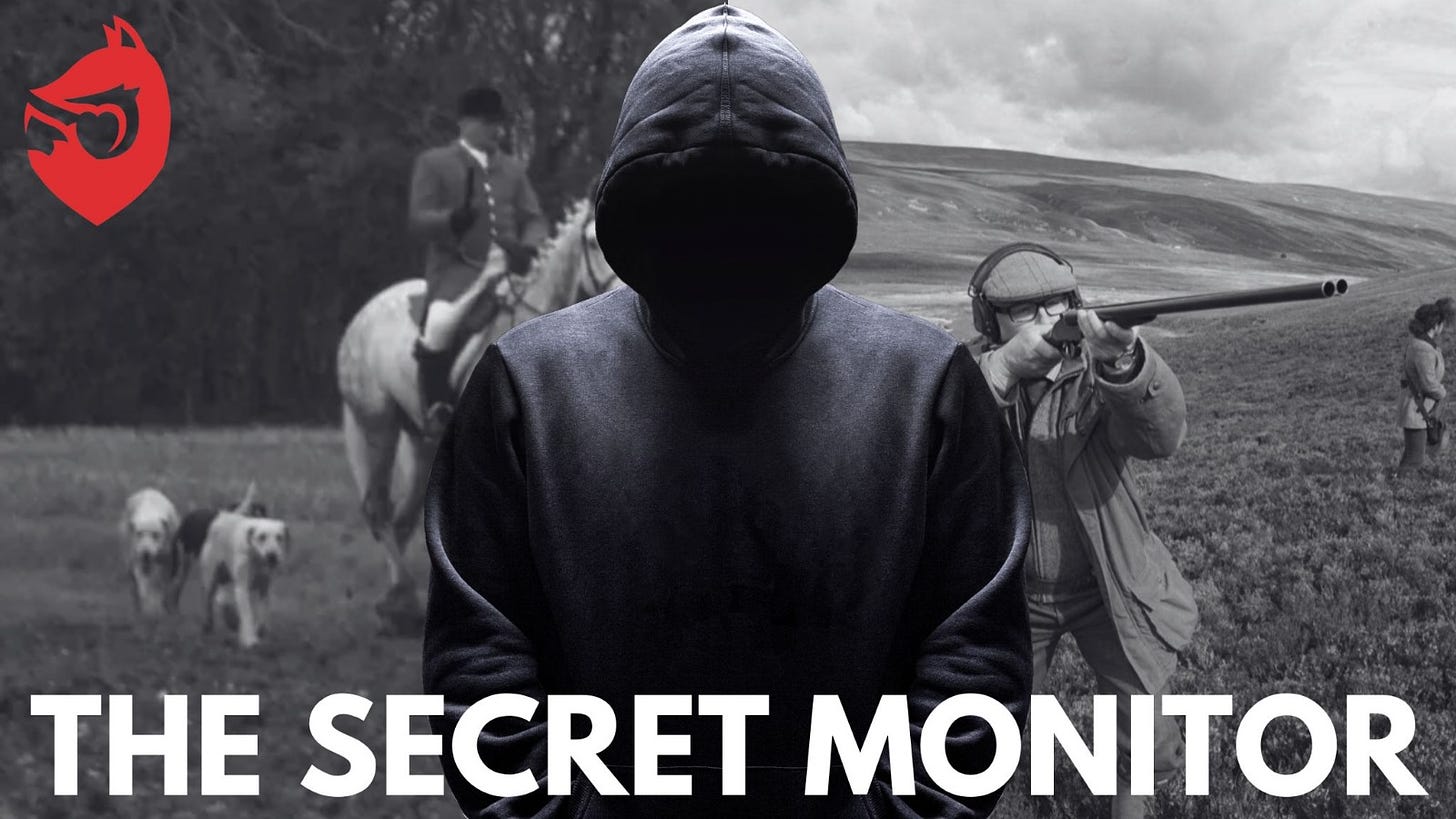
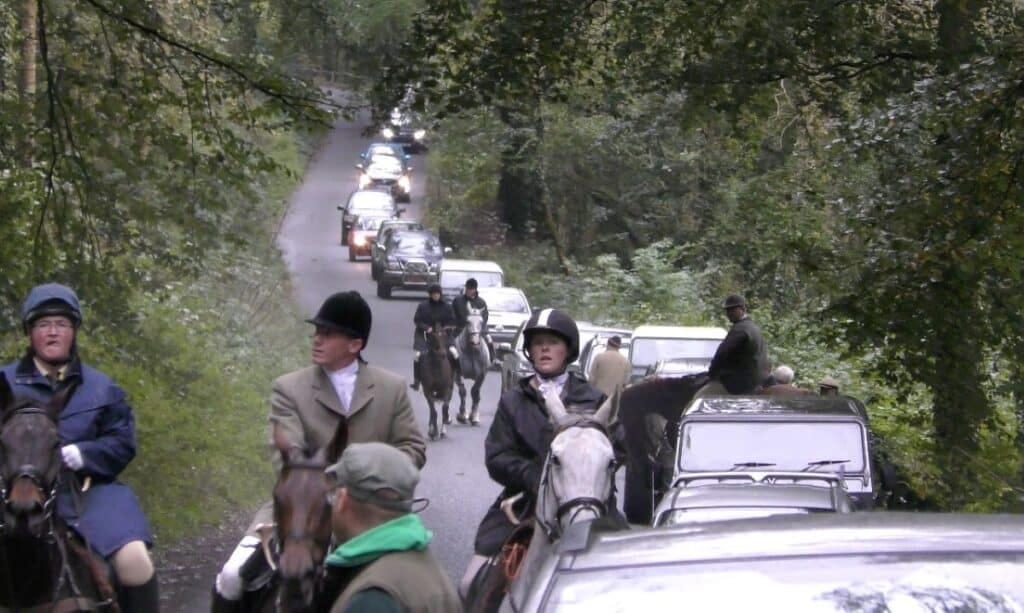
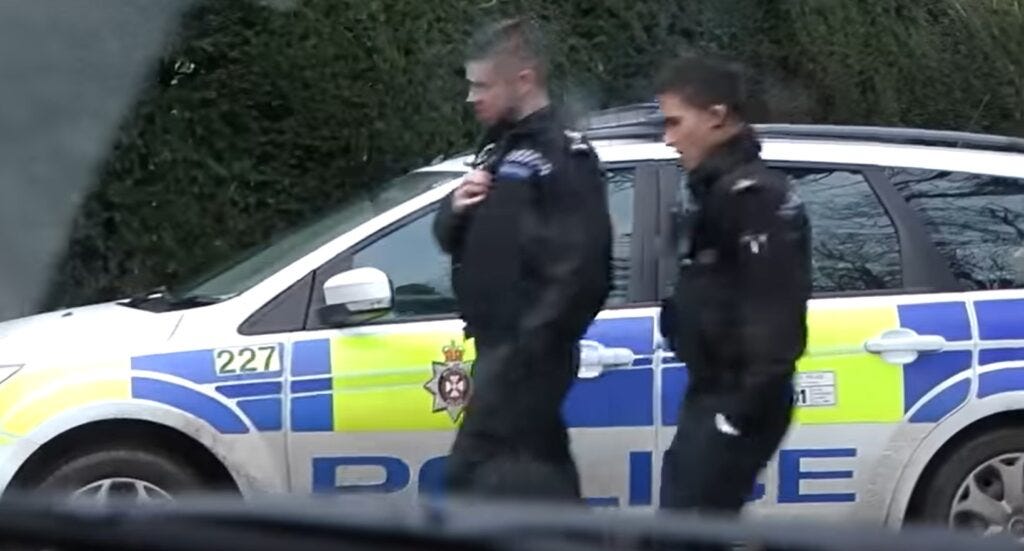
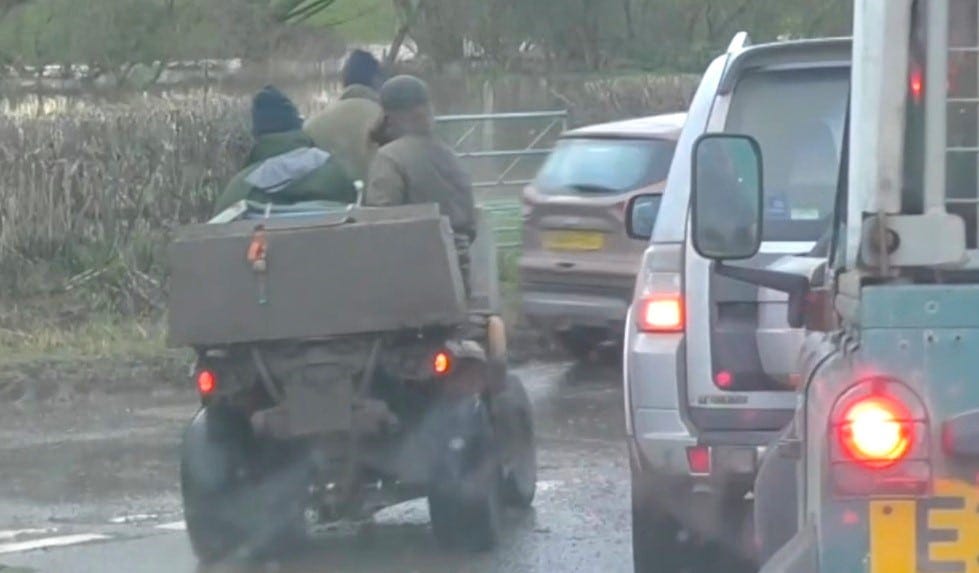
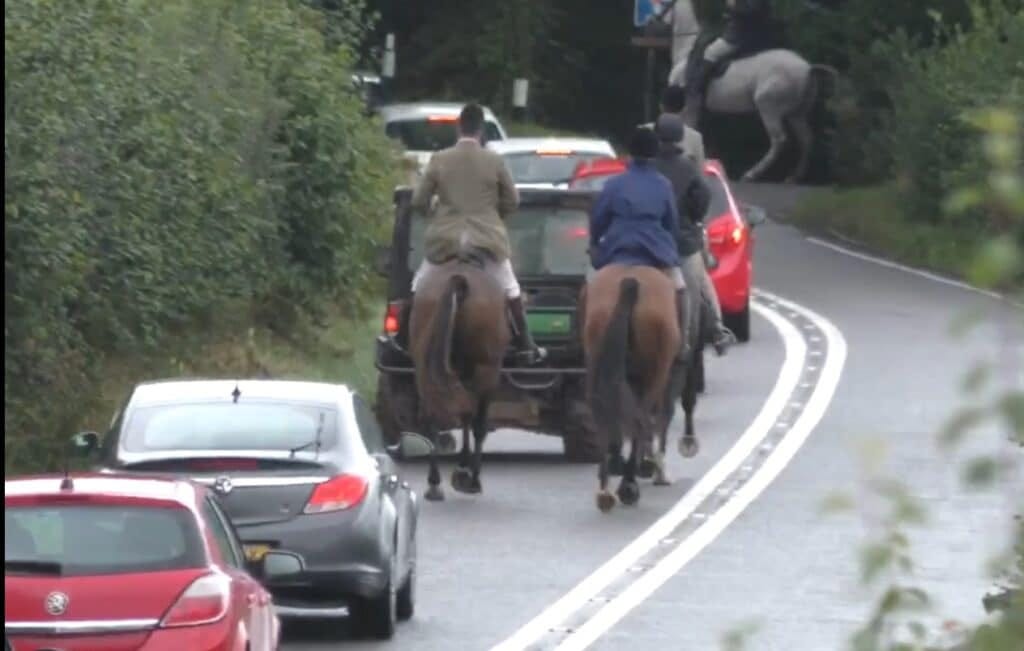

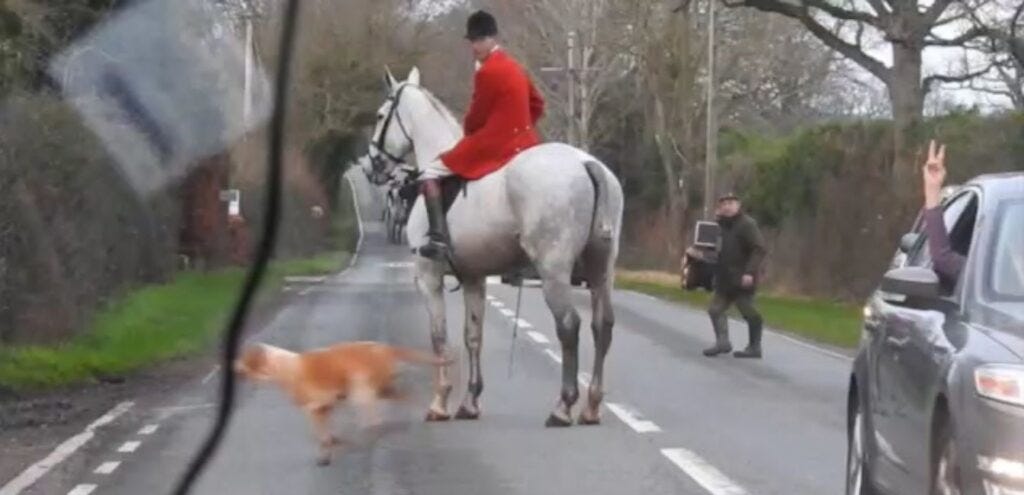

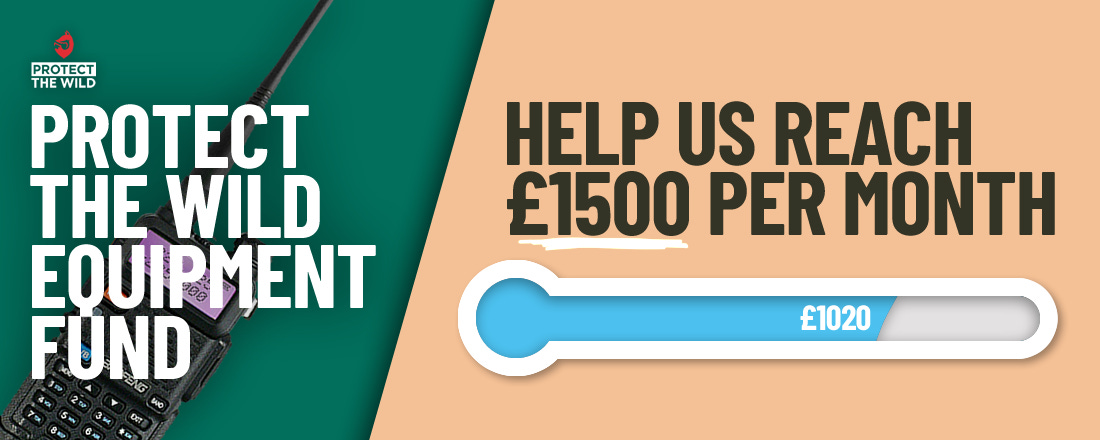
A well written piece, thank you. I think it certainly is the case that there has been police bias in favour of the hunts, in the past but with the rise of public awareness and the light being shone on the nefarious and illegal activities of hunts across Somerset,;I do genuinely believe things are beginning to change for the better. Of course what's needed is a change of government so that legislation can be brought in to close these ridiculous loopholes and exemptions which allow hunting to continue. In the meantime, keep sabbing, monitoring, protesting and writing to the PCC and your local councillors and MP's. We will win this struggle.
Such an amazing testimonial! So proud to be associated with you exceptionally brave and wonderful people! The more public such exposure is given the greater the steps to end it. The Police and hunts so underestimate the intelligence and determination of animal protectors. Please stay safe and keep going. Wish with all my heart I could do more for you. X